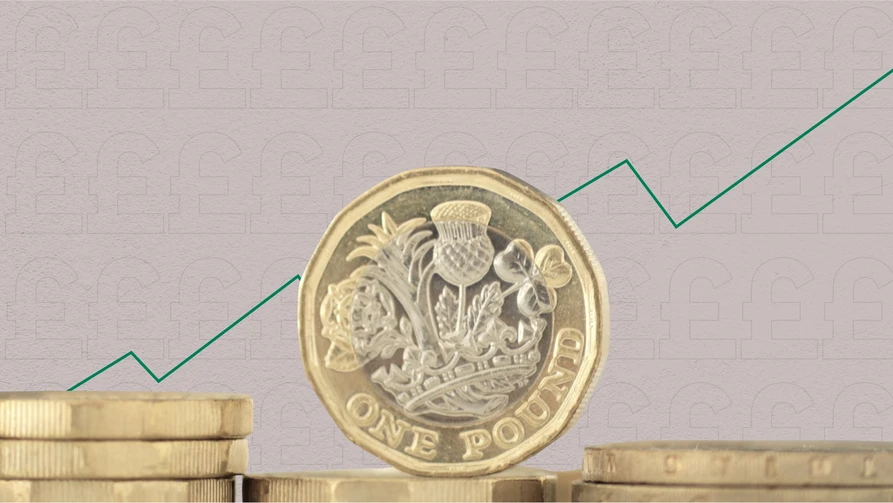A disappointing UK inflation report for the Bank of England
Today's report will not see the Monetary Policy Committee feeling there is any need to cut interest rates yet.

A set of UK inflation numbers today that will probably be read with a sense of disappointment inside the Bank of England (BoE). Although the annual headline rate fell from 3.4% to 3.2%, this was above the 3.1% figure broadly expected by the markets and the BoE itself. The monthly rate remained unchanged at 0.6%, also exceeding the consensus expectation of 0.4%. A similar picture was presented by core CPI, where the annual rate edged down only marginally from 6.1% to 6.0%. It is a set of numbers that will certainly not be seeing the Monetary Policy Committee (MPC) rushing to cut interest rates any time soon, and when read in conjunction with yesterday’s robust wages growth numbers, provides enough of an argument for the MPC to push back the timing of a first interest rate cut well into H2.
The bulk of the decline in the headline rate was attributable to falling goods prices, very much a reflection of the continued lowering of cost pressures as global supply chains, and the high rate of global inflation seen last year, continue to ease, in turn allowing manufactures to pass on lower prices to retailers. However, of concern to the MPC will be the on-going ‘stickiness’ being seen in the prices of services, the dominant sector in the UK economy and one that is directly influenced by factors such as the strength of wages growth. The MPC focuses on two measures of services inflation: the first excludes airline fares, education costs and package holidays; the second, and more recent metric, excludes airline fares, non-private rents, and accommodation services. Worryingly, upwards momentum in pricing is being seen in both, the former rising from 4.2% to 4.5% on a seasonally adjusted 3-mth-on-3mth basis, and the latter from 4.8% to 4.9%. It is pricing pressures such as these that were recently referenced by MPC member Haskell, who noted that while the headline rate of CPI might be falling, not until these underlying measures also started to head lower could the case be made for lowering interest rates.
Going forward, inflation is still expected to trend lower, but the evidence to date is suggesting this will happen more slowly than previously expected and which likely means the MPC will be pushed in the direction of cutting interest rates later than had previously been expected too. Indeed, the market has already responded to this more bullish inflationary outlook, with a single 25bps cut in interest rates now expected this year and not being fully priced in until November; as recently as end-February, some 75bps of cuts were expected by end-year.
With the MPC already split on whether monetary policy can be loosened yet or not, the economic data released so far this week will have boosted the arguments of the ‘hawks’ on the Committee. And while there is no suggestion that policy needs to be tightened, the outlook going forward is for the real rate of interest to continue to tighten, as the MPC opts to keep rates on hold in the face of inflationary pressures that are stubbornly dissipating only slowly.
A single 25bps interest rate cut is now expected this year; as recently as end-February, some 75bps of cuts were foreseen.









